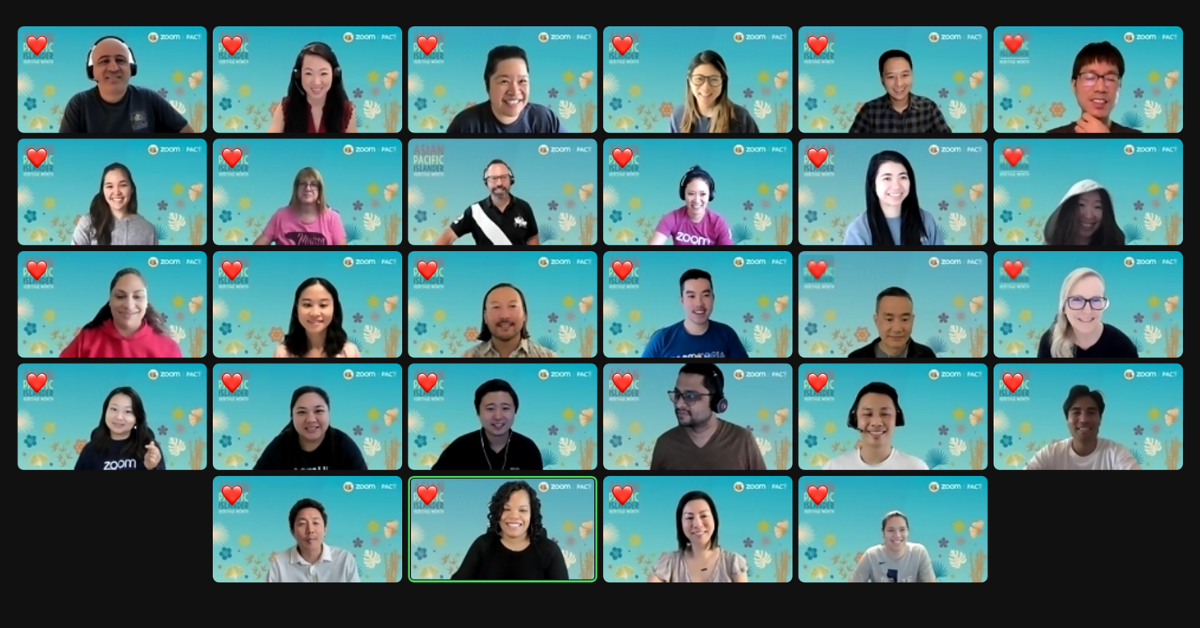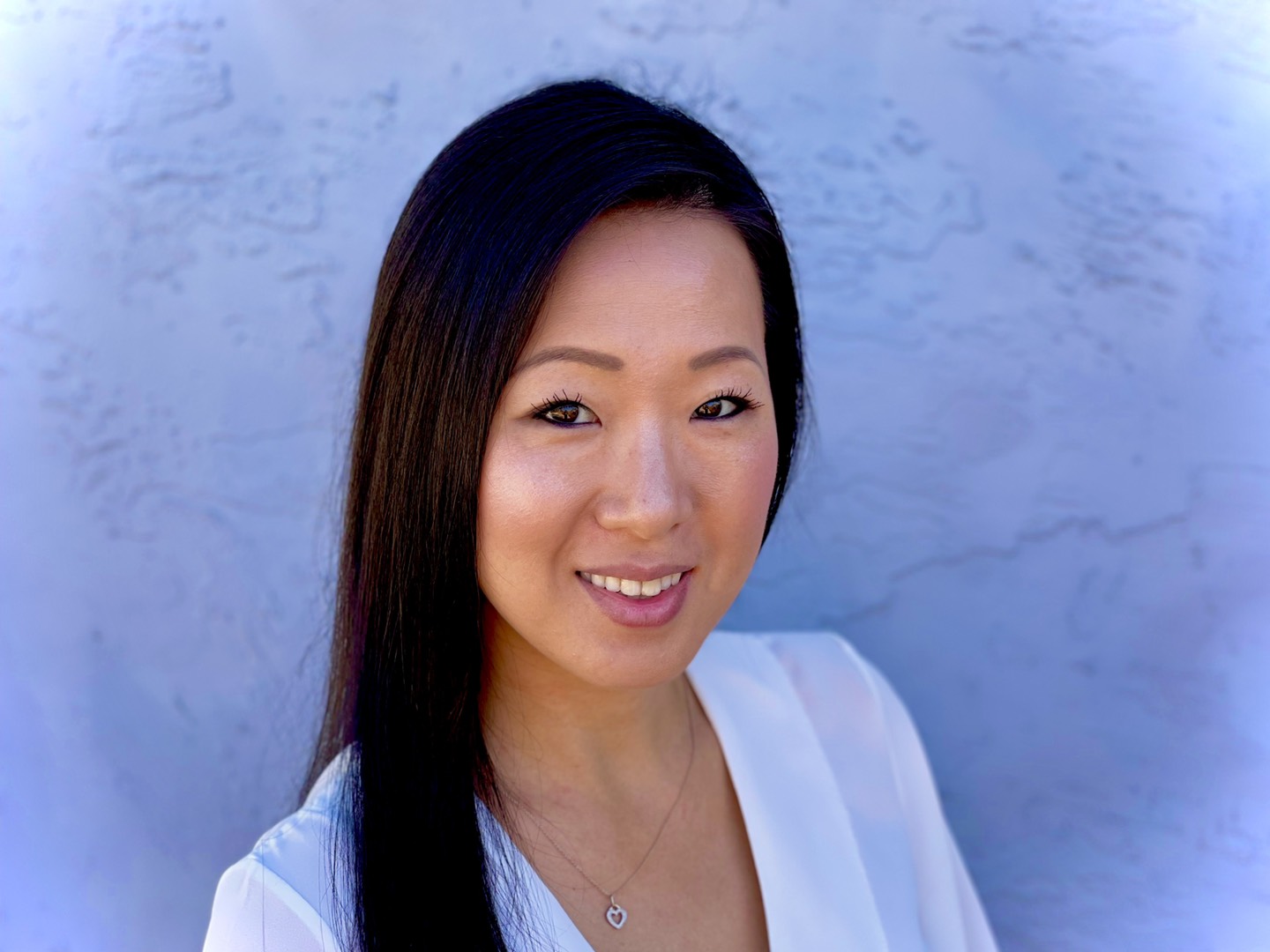
New $680K Zoom Cares grant helps women and girls access more opportunities
Zoom Cares grants $680,000 to help women and girls access and sustain educational and economic opportunities to pursue the futures they want for themselves.
Updated on June 02, 2022
Published on June 02, 2022


Pacific Islander and Asian Cultures Together (PACT) is our Employee Resource Group (ERG) uniting Zoomies to celebrate our diverse cultures and promote awareness, allyship, and support for the Asian and Pacific Islander community at Zoom.
With the help of our Diversity, Equity, and Inclusion (DEI) team, Zoom PACT celebrated Asian and Pacific Islander Heritage Month in May under the banner of our theme, “Making Waves.” Waves can make an amazing impact regardless of their size or strength. Whether we are moving large boulders or creating a trickle effect that reaches far distances, we all have stories to be celebrated.
With that in mind, we invited speakers from a range of backgrounds to hear how they are “making waves” in their community through storytelling and representation. Check out our recap below:

We welcomed our first speaker of the month, journalist and author Anand Giridharadas, for a Zoom Talks session held in partnership with our DEI team. Anand shared some insights from his New York Times bestseller, “Winners Take All” and his new book, “The Persuaders.” He also talked about his experience growing up as the son of Indian immigrants, and his thoughts on the future of America as a country of pluralism and diversity.
Anand told us about a lesson his son learned at school: “[My son told me,] ‘Fairness is not everybody getting the same thing. Fairness is everybody getting what they need,’” he said. “The fact that six-year-olds today are learning this and can explain it in terms that they understand gives me hope that we are building new types of societies, new types of communities, and a new kind of world.”

Next, we heard from Julia Chon (also known as Kimchi Juice), a Korean American artist based in Washington, D.C. Julia shared her perspective on how she creates art inspired by her Korean heritage, and how she began making large-scale murals like the image shown above.
“At the heart of mural-making is the democratization of art,” she said. “I think [as a muralist] you have a responsibility to the community you’re coming into that’s not your own to paint something that is meaningful and has impact.”
Julia also talked about how her art has been influenced by the pandemic and the rise in anti-Asian hate crimes. “As Asian Americans, it was a moment to really reflect and to take in what was going on, and that was very much channeled into this piece [below],” she said.

Our next guest was Jan Yanehiro, an Emmy-winning journalist who hosted the groundbreaking Evening Magazine program for 15 years. Jan said her parents encouraged her to pursue a more traditional occupation, but her desire to go beyond the expectations set by her family and culture led her to her dream career.
“I think it’s OK to think out of the box and try something new — if you want to do something different than the path chosen for you, I say you go and do it,” she said.
Jan’s road to becoming one of the first Asian American female broadcast journalists wasn’t always easy, but she persisted. “I was turned down by every single TV station in San Francisco for a job because nobody looked like us, and they didn’t think we should be hired to report, to anchor, to host TV shows,” she said. “I thought we had to have a voice and that we had a place, so I kept knocking on doors.”

In our final session of the month, we heard from Ka‘iulani Murphy, a crew member with the Polynesian Voyaging Society. Ka‘iulani has been studying the art and science of Polynesian wayfinding for more than 20 years, which involves open-ocean navigating without the use of modern instruments, using only the stars, winds, birds, ocean, and other signs from nature.
Ka‘iulani described the experience of sailing on Hōkūleʻa, a traditional voyaging canoe, as “magical.” “Seeing the sea life, watching every moon rise and moon set — it’s very quiet, there’s very little distraction, and it almost feels like you’re traveling in time,” she said. “We are sailing in the wake of our ancestors and there’s no other way I would know how to experience it than on the deck of a canoe.”
She also brought up the importance of carrying on the knowledge and traditions of her kupuna (elders or ancestors) through voyaging. “Continuing to teach and practice navigation is a big part of it … those who came before us are always recognized and remembered and honored,” she said. “Hōkūleʻa has helped us rediscover ourselves and explore who we are and where we come from.”
It’s been such an honor to welcome speakers from different backgrounds, cultures, and walks of life to share their stories with us. Despite their diverse experiences, they share a common thread — the desire to push the envelope, go against expectations, and rise above challenges to chart a new path for themselves.
Whether they’re breaking barriers in journalism, exploring their heritage in new ways through art, or keeping cultural traditions alive, our speakers have all inspired us to make waves in our own way. We’re thankful to them, our Zoom PACT members, DEI team, and allies for taking part in our Asian and Pacific Islander Heritage Month celebration.